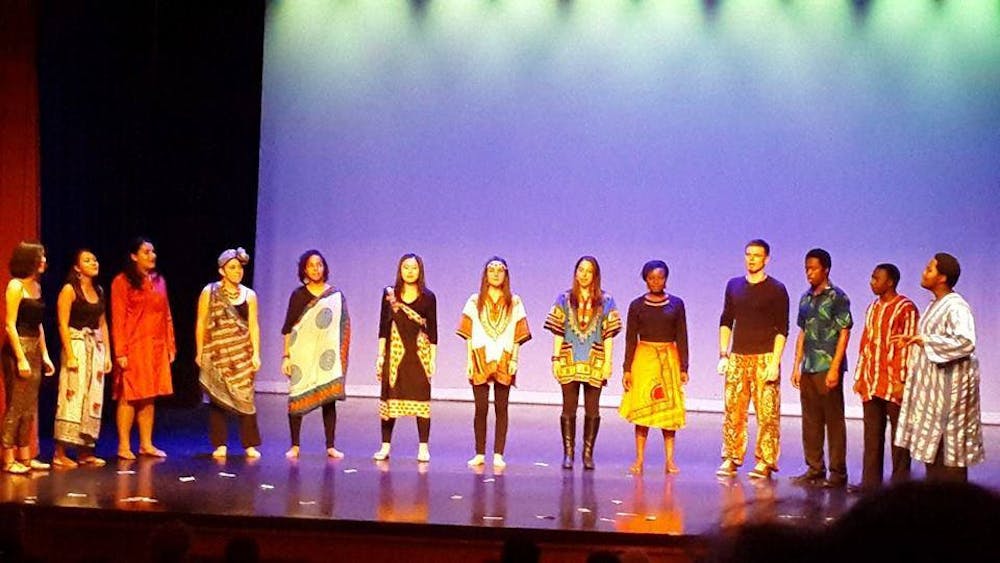On Sunday, Sept. 20, Ingoma made its first appearance at the Middlebury A Cappella Jamboree. But rather than mmm-bopping through a Billboard Hot 100, the group performed music from another source: the African continent.
Ingoma, which gets its name from an African drum, was created in the fall of 2013 by Armel Nibasumba ’16, Mzwakithi Shongwe ’16 and Yuki Takeda ’14. They viewed it as a casual singing group that filled a gap they noticed in Middlebury’s a cappella scene. Shongwe, one of the two co-presidents, notes that even now, the Middlebury a cappella scene is lacking in a broader spectrum of culture.
“There is still no real Asian music a cappella group,” he observed.
Initially, Ingoma was merely a casual way to learn and have fun for its three original members. Their first performance took place at the International Student Organization (ISO) show in the fall of 2013, where Armel, Mzwakithi and Yuki performed a piece called “Shebeleza” by Joe Mafela about the perseverance of the people of the Democratic Republic of Congo. It was not until the spring that the group acquired more members and female vocalists and was able to put on an even bigger performance. At that point, however, Ingoma remained informal and, as Mzwakithi puts it, “underground.” Entry to the group required no audition and they performed mostly with and for international students and students of color.
Things began to change for Ingoma and its members about a year after its founding. Just as the group began to gain steam, Ingo- ma suffered through a series of challenges, the most difficult being that a large portion of the group either graduated or went abroad.
“We love being a small group... but you need to be big enough so that when half the group leaves, you still have a group,” Shon- gwe explained.
To combat the blow of losing so much talent, the remaining members of Ingoma held their first auditions, and Ingoma was able to recover in time for its second performance at the ISO show in December of 2014.
Now, after making its first appearance at the A Cappella Jamboree and holding another round of auditions, Ingoma looks forward to more growth, more exposure and more music. One of their goals is to record and produce a song to put on their Sound-cloud in order to reach a larger audience and garner more interest. In the coming months, Ingoma also plans to add music from the African diaspora to their repertoire. These new genres, which have Southern Gospel, Caribbean and Afro-Brazilian influence, will expand the cultural identity of the group while staying true to its roots in the African continent.
A goal less tangible than a recording and a larger body of work, however, is to gain more legitimacy as a singing ensemble.
As Shongwe put it, “The big thing is to be taken seriously, which is different from being considered a ‘good’ a cappella group.”
One necessary component of this plan is to encourage more students to audition for a role in the group. Ingoma also hopes that the songs they put on the Internet will incite more invitations to perform on and beyond the Middlebury campus.
Lastly, and perhaps most importantly, Shongwe emphasized that for him and his fellow Ingoma members, being taken seriously by others should not mean taking themselves too seriously.
“We have always been super casual,” he said. “And that is an element... that we want to retain.”
It is easy for people at Middlebury to become caught up in the fast-paced and demanding environment of the school. Finding a casual space to express oneself is a precious opportunity. Ingoma aims to be a relaxing, fun and easygoing outlet for people to make friends and create music that will continue to diversify and liven up the a cappella scene at Middlebury.
Ingoma Beats its Own Drum

Comments



